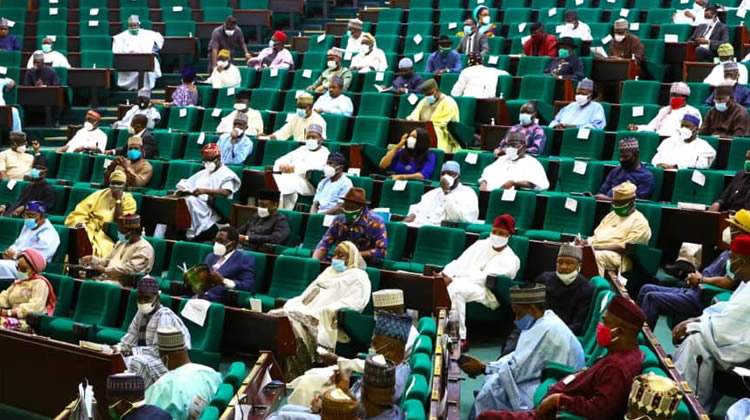
A draconian bill being prepared by the House of Representatives seeking to prevent newly qualified Nigerian doctors from seeking employment abroad immediately after graduation is the wrong response by unimaginative lawmakers to a national crisis. Responding belatedly to the long-running exodus of medical doctors and other health professionals seeking greener pastures, legislators have rammed the Medical and Dental Practitioners Act (Amendment) Bill 2022 that would force doctors to work in the country through its second reading. Oppressive, and a gross violation of basic rights, it is dead on arrival. The House should stop wasting taxpayers’ time and money on a bill that cannot survive judicial scrutiny.
The bill makes it mandatory for graduates of medical and dental fields to render services within Nigeria for five years before being granted full licence by the Nigerian Medical and Dental Council. Quashing theobjections of some members, the Speaker of the House, Femi Gbajabiamila, falsely declared that the government had the power to infringe on human rights “for public good.” This is not supported by the constitution. The rare conditions under which rights can be abridged are spelt out in the basic law; depriving medical professionals their freedom of choice and of movement are not part of them.
When countries are confronted with problems, leaders and lawmakers deploy intelligent proposals and robust engagement with stakeholders to find solutions; resorting to draconian legislation to tackle a social as opposed to a criminal problem is deleterious. The attempt to indenture doctors is unconstitutional. Should the National Assembly pass the bill, it should be denied presidential assent,and failing that, challenged in court.
Surely, there is a serious crisis in the country’s health sector. Significantly, it is engendered by the visionlessness of the federal and sub-national governments and legislatures. The health system is broken and all Nigerians bear the brunt. Medical professionals are also victims, not the cause of the rot. The bill will further victimise them.
The rot is deep. The World Health Organisation rates Nigeria’s health system the fourth worst in the world, ranking it 187th of the 190 countries surveyed and better only than Congo DR, Central African Republic, and Myanmar. The global body estimated the total number of healthcare professionals in Nigeria at 439,639, approximating to 20.6 per 100,000 citizens in 2021. Of this, 84,277 are medical doctors, representing 3.9 doctors per 10,000 people. The Nigerian Medical Association put the doctor-patient ratio at 1:5,000 compared to the WHO recommendation of 1:600.
The problem is compounded by the exodus of doctors and other health workers seeking better prospects. The National Association of Government General Medical and Dental Practitioners said over 2,000 doctors left Nigeria for Europe, Saudi Arabia and Canada in 2022. Nigerian doctors practice in Oman, Dubai, Qatar and other countries. There were 11,001 Nigeria-trained doctors registered in the United Kingdom according to its General Medical Council. Africheck, a fact-checking medium, said 3,895 Nigerians practise in the United States, while the Canadian Medical Association said 632 Nigeria-trained doctors practised in Canada by 2020.
Brazil, Russia, India, China, and South Africa have clear roadmaps towards achieving the UN Sustainable Development Goal 3 of “ensuring healthy lives and promoting well-being for all ages.” Brazil has a 2.56: 1,000 doctor-patient ratio, Russia 50.4:10,000, India 1:834, South Africa 1:3,918, China 3.04:1,000, and Cuba 1:150.
The government and the lazy federal lawmakers should rather identify the root causes of the exodus and find solutions, not reach for the tyrant’s playbook. You cannot compel service from persons whose training you did not fund.
The Blavanik School of Government, Oxford University, identified deplorable working conditions as part of the “push factors” that engender the brain drain. Others are overwhelmed doctors, ill-equipped hospitals, and rampant insecurity countrywide. Underfunding is endemic.
Remuneration ranges from poor to barely manageable. State and local governments owe salaries and allowances for months on end. Naturally, doctors and others respond to the “pull factors;” the availability of incentives, better remuneration, favourable working conditions,and opportunities for self-improvement elsewhere and emigrate accordingly.
Crudeness and brute force will not work. State Security Service personnel in August 2021 stormed the recruitment venue in Abuja where candidates for 500 medical doctors openings in Saudi Arabia were being screened. Such missteps only drive head-hunting back to the standard confidential mode. In just 100 days, June to September 2021, UK’s GMC licensed an additional 353 Nigeria-trained doctors; another 200 others were licensed there in just one month –August to September 2022. The SSS storm troopers had therefore acted in vain.
The federal and state governments can only halt the migration through better funding. They should build hospitals, equip them, and implement comfortable remuneration for doctors and other health workers.
Healthcare workers’ deficit is a global challenge, and the WHO has identified 54 other countries grappling with manpower shortages, but Nigeria is not acting right. Cuba is renowned for creating a sustainable healthcare system that it also exports to other countries. “Cuba is the only country that has a health care system closely linked to research and development,” the WHO said.
Urgently, Nigeria should revitalise the primary health centres. The WHO says Nigeria needs at least 10 million health workers to improve the doctor-population ratio by 2030. Therefore, government should invest in educating health care personnel.
Legislators should pass laws prohibiting public officers from foreign medical travels at public expense. They should use their own money. Improving the healthcare delivery system at every level and state-of-the art facilities around the country should be a priority to reduce medical tourism by Nigerians. This drains between $1.2 billion and $1.6 billion annually, admits the government.
While primary health centres must be revitalised, government must build at least one excellent hospital in each state. India has invested in medical hubs where medical tourism is currently worth $6 billion, receiving 697,543 medical tourists in 2019. The vapid bill should be jettisoned immediately. If the lawmakers have no practical ideas to offer, they should find something useful to occupy themselves until the Ninth NASS tenure ends in May.





